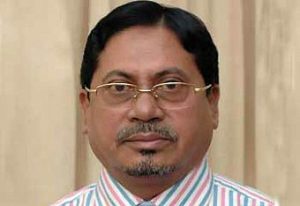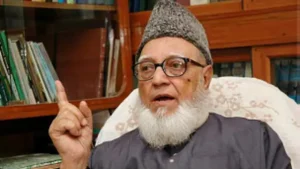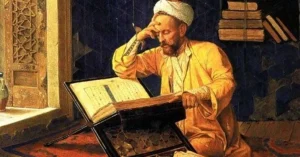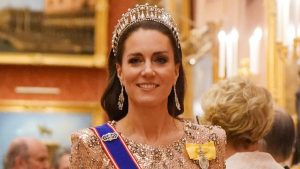
Xi has presided over the military reforms, including restructuring the People’s Liberation Army (PLA) to make it more agile and capable of projecting power globally. This includes the development of a blue-water navy and a more assertive stance in territorial disputes, particularly in the South China Sea and Taiwan Strait.
7. Foreign Policy and Global Diplomacy
Xi Jinping has promoted China’s global influence through initiatives like the Belt and Road Initiative (BRI), aimed at expanding China’s economic and political clout across Asia, Africa, and Europe through investments in infrastructure, trade, and energy.
He has also advocated for a more assertive China on the global stage, promoting the idea of a “community of shared future” for mankind. This involves building China’s role in global governance, promoting multilateralism, and challenging the U.S.-led international order.
His leadership has led to a tougher stance on issues like trade (including the trade war with the U.S.) and territorial sovereignty, particularly in Hong Kong, Xinjiang, and Taiwan. At the same time, he has cultivated closer ties with other major powers, such as Russia and Pakistan.
8. Control Over Society and Media
Xi has sought to increase Party control over every aspect of Chinese society, including education, media, and technology. Under his leadership, the Great Firewall of China has been enhanced, further restricting internet access and controlling information.
Xi’s government has ramped up censorship, cracking down on online dissent and suppressing independent journalism. The Party has implemented new measures to control the narrative surrounding sensitive topics such as Tiananmen Square, Hong Kong protests, and Xinjiang.
His leadership has also seen a repression of ethnic minorities, particularly Uighur Muslims, who have faced mass detentions and surveillance in Xinjiang.
9. Personal Style and Public Image
Xi Jinping is known for his hands-on, authoritative leadership style, in contrast to his immediate predecessors, who tended to adopt more collective leadership approaches. Xi has cultivated a strong personal brand, often appearing as a decisive, patriotic, and visionary leader.
His leadership has placed him at the center of Chinese politics and culture, making him a strongman who exerts near-total control over the country’s direction.
Xi Jinping’s Personal Life
Xi Jinping’s personal life has largely been shaped by his political career, family background, and the cultural and historical context in which he grew up. Below is an overview of key aspects of his personal life:
1. Family Background
Father – Xi Zhongxun
Xi Jinping was born into a prominent political family. His father, Xi Zhongxun, was a veteran revolutionary and a senior leader in the Chinese Communist Party (CCP). Xi Zhongxun played a significant role in China’s revolutionary history and held high-ranking positions in the Chinese government. He was a member of the Politburo and served as a key figure in the Party’s leadership. However, during the Cultural Revolution, Xi Zhongxun was purged, which led to significant hardship for the family. This experience had a profound impact on Xi Jinping’s worldview.
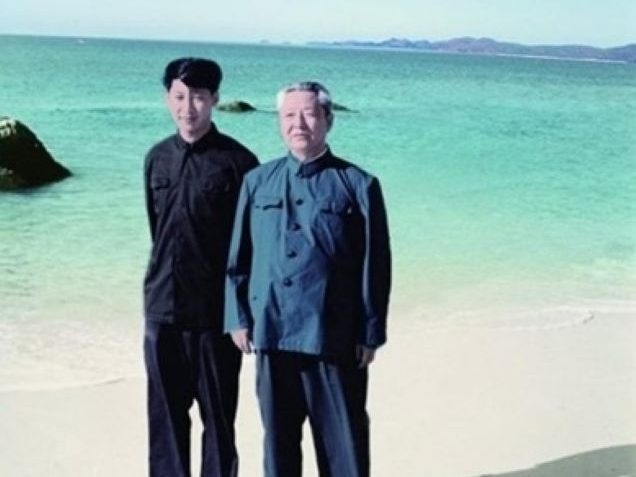
Mother – Qi Xin:
Xi Jinping’s mother, Qi Xin, was well-educated and was supportive of her husband’s political career. She raised Xi Jinping and his siblings during difficult times, particularly when the family faced political persecution.
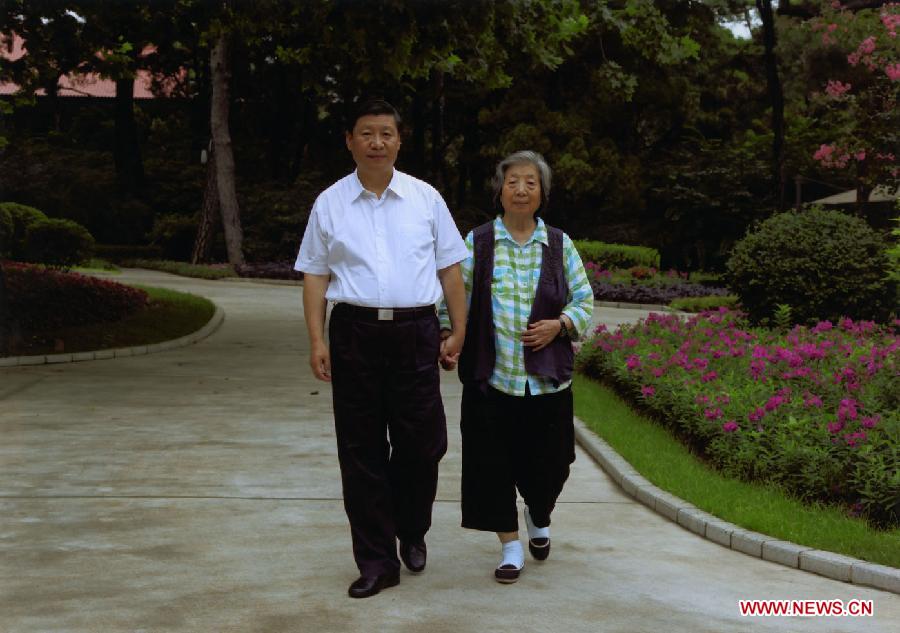
Siblings: Xi Jinping has two sisters, Xi Heping and Xi Anjun, both of whom have stayed out of the public eye. The Xi family, though well-known, has maintained a relatively low profile compared to other prominent political families in China.
2. Marriage and Family
Wife – Peng Liyuan: Xi Jinping’s wife, Peng Liyuan, is a famous Chinese folk singer and performer. She was a well-known soprano and military singer in China before Xi became the President. Peng Liyuan is an internationally recognized figure, having performed at events such as the Beijing Olympics and during state visits abroad. She has been described as a highly respected figure in Chinese culture, and her public appearances have often contrasted with the more reserved image of Xi Jinping himself.
Peng Liyuan and Xi Jinping married in 1987, and she has remained a supportive figure throughout his political career. Despite her fame, she has largely kept a low profile in terms of political matters.
Children: Xi Jinping and Peng Liyuan have one daughter, Xi Mingze, born in 1992. Xi Mingze has maintained a relatively private life, attending Harvard University in the United States under a pseudonym to avoid media attention. She has been shielded from the public spotlight for the most part, as Xi and Peng have tried to protect her privacy, given her prominent family background.
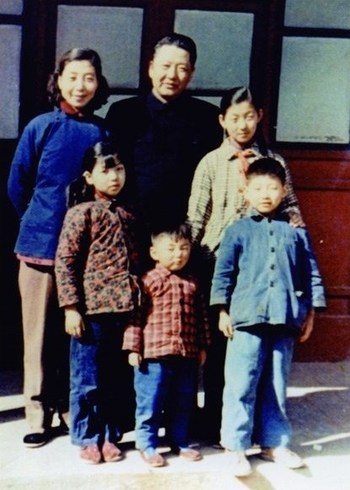
3. Personal Interests
Interests in History and Culture: Xi Jinping has shown a deep interest in Chinese history and culture, and he often references China’s civilizational legacy in his speeches. He is also known for his love of Chinese traditional culture, which he sees as vital for the country’s identity and future. Xi has 4. Early Life and Challenges:policies aimed at reviving Chinese cultural practices, including efforts to bolster Confucian values in society.
Reading and Intellectual Pursuits: Xi is an avid reader and has a keen interest in classical Chinese texts, as well as the writings of the Chinese Communist Party’s founding figures like Mao Zedong and Deng Xiaoping. He has also emphasized the study of Marxist philosophy and Chinese socialism as central elements of his political ideology.
Physical Activity: Xi Jinping has been known to engage in physical activities like swimming and running. He has been photographed engaging in outdoor activities and has appeared in various public settings where he is seen walking or interacting with citizens.
4. Early Life and Challenges
Cultural Revolution Experience: Xi’s early life was marked by hardship during the Cultural Revolution (1966-1976). As a child of a prominent political figure, Xi’s family was targeted during this tumultuous period. His father was purged, and the family was sent to live in Xianyang, a rural area in Shaanxi Province, where Xi spent several years working as a laborer. This experience of rural life and hardship had a profound effect on Xi and is often cited as having helped shape his political thinking.
Resilience and Growth: Despite the challenges, Xi was able to pursue his education and later ascend through the political ranks. His ability to overcome adversity and political persecution has often been framed as a key part of his personal journey.
5. Political Philosophy and Personal Ideology
Xi Jinping Thought: Throughout his leadership, Xi has consistently emphasized the importance of nationalism, Marxist principles, and Chinese exceptionalism. His personal philosophy is deeply intertwined with the Party’s ideological framework, particularly in Xi Jinping Thought on Socialism with Chinese Characteristics for a New Era.
Emphasis on Family Values: Xi Jinping has spoken about the importance of family values and the role of the family in shaping individuals’ morality. He has often highlighted how his own family’s experiences, particularly the struggles his father faced, have influenced his views on the need for strong, stable leadership in China.
6. Public Image and Media Representation
Xi Jinping has curated a highly controlled public image. He is seen as pragmatic, decisive, and a symbol of Chinese nationalism. His leadership style, while authoritative, is often portrayed as being rooted in the principles of Chinese socialism and the rejuvenation of the Chinese nation.
He is rarely seen in public without his wife, Peng Liyuan, and they are often portrayed as a unified and harmonious couple in the media. Their public appearances are designed to showcase China’s cultural values and the image of a strong, united leadership.
Xi Jinping’s Legacy
Xi Jinping’s legacy is deeply intertwined with his leadership in transforming China into a major global power while consolidating authority within the Chinese Communist Party (CCP) and the state. As the President of the People’s Republic of China, General Secretary of the CCP, and Chairman of the Central Military Commission, Xi has fundamentally shaped the course of China’s political, economic, and international strategies. Here are the key aspects of his legacy:
1. Strengthening Party Control
Centralization of Power: Xi has centralized power to an extent unseen in China since the era of Mao Zedong. He has consolidated his role in all major branches of government, the military, and the CCP. The “Xi Jinping Thought on Socialism with Chinese Characteristics for a New Era” was incorporated into the CCP’s constitution, giving Xi’s ideology the same status as Mao’s.
Authoritarian Leadership: Under his leadership, China has seen a rollback of political freedoms, with a tightening grip on media, dissent, and civil society. He has also ensured that key positions of power are filled with loyalists who uphold his vision.
2. Economic Reforms and the “Chinese Dream”
Economic Modernization: Xi’s leadership has focused on modernizing China’s economy, moving away from its dependence on traditional manufacturing toward more technology-driven industries like AI, 5G, and electric vehicles. Under his leadership, China has also pushed for economic self-sufficiency, especially in technology, to reduce reliance on foreign countries.
“Chinese Dream”: Xi Jinping’s vision for China’s future, often referred to as the “Chinese Dream”, emphasizes the rejuvenation of the Chinese nation, the expansion of China’s global influence, and the improvement of the standard of living for its people. This vision has been a guiding principle in Xi’s policies, stressing national pride, economic prosperity, and stability.

